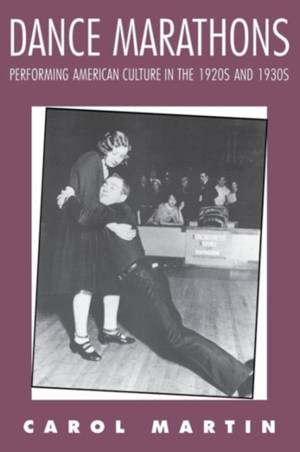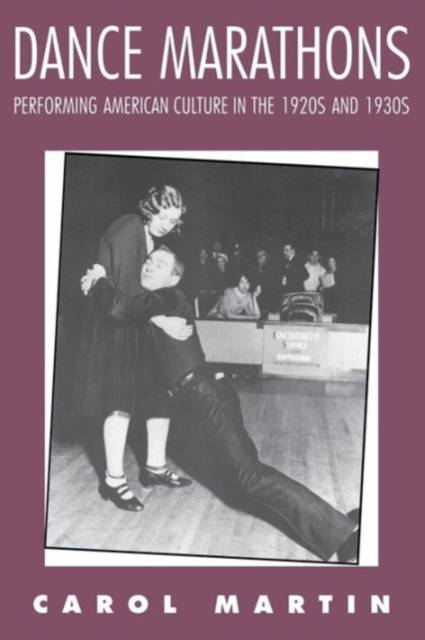
- Afhalen na 1 uur in een winkel met voorraad
- Gratis thuislevering in België vanaf € 30
- Ruim aanbod met 7 miljoen producten
- Afhalen na 1 uur in een winkel met voorraad
- Gratis thuislevering in België vanaf € 30
- Ruim aanbod met 7 miljoen producten
Zoeken
€ 59,45
+ 118 punten
Omschrijving
This penetrating analysis of one of the most extraordinary fads ever to strike America details how dance marathons manifested a potent from of drama. Between the two world wars they were a phenomenon in which working-class people engaged in emblematic struggles for survival. Battling to outlast other contestants, the dancers hoped to become notable. There was crippling exhaustion and anguish among the contenders, but ultimately it was the coupling of authentic pain with staged displays that made dance marathons a national craze. Within the well-controlled space of theatre, they revealed actual life's unpredictability and inconsistencies, and, indeed, the frightful aspects of social Darwinism. In this grotesque theatrical setting we see also a horrifying metaphor--the ailing nation grappling with difficult times.
Specificaties
Betrokkenen
- Auteur(s):
- Uitgeverij:
Inhoud
- Aantal bladzijden:
- 210
- Taal:
- Engels
- Reeks:
Eigenschappen
- Productcode (EAN):
- 9780878057016
- Verschijningsdatum:
- 1/08/1994
- Uitvoering:
- Paperback
- Formaat:
- Trade paperback (VS)
- Afmetingen:
- 156 mm x 230 mm
- Gewicht:
- 349 g

Alleen bij Standaard Boekhandel
+ 118 punten op je klantenkaart van Standaard Boekhandel
Beoordelingen
We publiceren alleen reviews die voldoen aan de voorwaarden voor reviews. Bekijk onze voorwaarden voor reviews.








